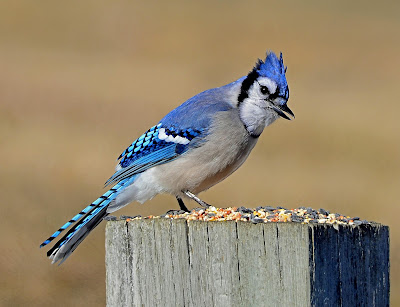Orion is an old friend of mine
 |
| The constellation Orion the Hunter photo by Sue Pike |
by Sue Pike yorkweekly@seacoastonline.com published Feb 7 2017
Of the many magical encounters my students and I had on our recent trip to the Cape Eleuthera Institute in the Bahamas, one of the best was a night hike in search of the remnants of a long-abandoned resort at the end of the island. We stopped in
the middle of an old road and lay down to look at the stars and listen to the frogs and insects and nocturnal bird noises coming from the surrounding forest. There is almost no light pollution there, the night sky was twinkling with more stars than I have ever seen. We looked for constellations and talked about the myths behind them. I loved this. I grew up with a dad who was a physicist and amateur astronomer. We used to go camping out in remote New Hampshire (we lived in suburban New York where the sky glow from city lights drowned out the night sky) in the fall. We didn't use tents, just lay among the roots of an old tree where we could see the night sky through the leafless branches. I would fall asleep listening to my father tell stories about the stars.
As an optical physicist, my dad also knew all about the light energy emitted by stars, the various intensities and colors and what they meant. I remember he loved talking about Betelgeuse, a red supergiant star. Betelgeuse is currently shedding much of its mass into space - the physics behind how it is doing this is currently a hot topic because the gas shed by Betelgeuse is much cooler than expected and no one can explain exactly why. Betelgeuse is in its death throes; according to astronomer Larry Sessions (earthsky.org). "Someday soon (astronomically speaking), it will run out of fuel, collapse under its own weight, and then rebound in a spectacular supernova explosion. When this happens, Betelgeuse will brighten enormously for a few weeks or months, perhaps as bright as the full moon and visible in broad daylight." Someday soon is on the order of hundreds of thousands of years, so chances are we won't live to see this happen.
Betelgeuse is part of my favorite constellation, Orion the Hunter, probably the most recognizable cluster of stars in the winter sky. To find Orion look for his belt, three bright stars in a straight line. A sword hangs down from his belt. The central star of the sword is the Great Orion Nebula: a stellar nursery where new stars are being born and one of the most studied regions in all of space. Orion's belt lies between two of the brightest stars in the night sky - Betelgeuse defines his right shoulder and Rigel his left knee. Less bright are a club he holds in his upraised right hand and a shield (or in some versions a lion skin - I think it looks more like a shield) in his left. I don't think I've ever seen the club, but the shield was obvious down in dark of the Bahamas - I'm excited to look for it next time I am in a similarly remote place.
Every culture whose people could see the constellation we call Orion has a name and a myth for this distinctive cluster of stars. I grew up with the story of Orion as told by Bulfinch's Mythology: The Age of Fable. In this version Orion was the son of Neptune. He was a great hunter, a favorite of Diana (aka Artemis the goddess of the hunt and the moon, sister to Apollo). Apollo was jealous of their closeness. "One day, observing Orion wading through the sea with his head just above the water, Apollo pointed it out to his sister and maintained that she could not hit that black thing on the sea. The archer-goddess discharged a shaft with fatal aim. The waves rolled the dead body of Orion to the land, and bewailing her fatal error with many tears, Diana placed him among the stars, where he appears as a giant, with a girdle, sword, lion's skin and club. Sirius, his dog, follows him, and the Pleiads fly before him."
There are a number of versions of Greek and Roman myths explaining how exactly Orion made it into the night sky. In one Scorpio the scorpion is chasing him through the heavens. In another he is there in punishment for the wanton killing of animals. However he got there, every fall, when Orion begins to appear over the horizon I feel like I am greeting an old friend.



Comments
Post a Comment